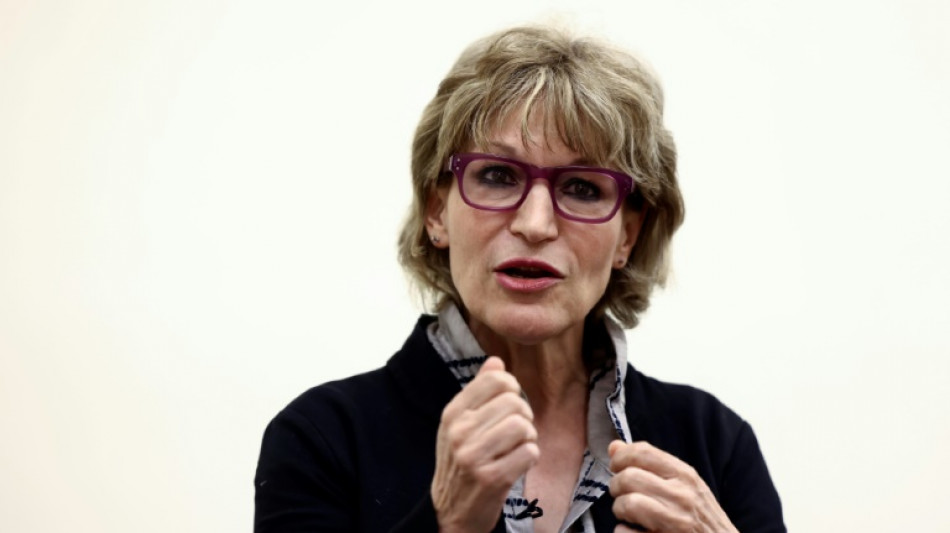

Amnesty joins other rights group in condemning Israeli 'apartheid'
Amnesty International on Tuesday labelled Israel an "apartheid" state that treats Palestinians as "an inferior racial group," joining the assessment of other rights groups which the Jewish state vehemently rejects.
"Israel's cruel policies of segregation, dispossession and exclusion across all territories under its control clearly amount to apartheid," said Amnesty's secretary general Agnes Callamard.
"Whether they live in Gaza, east Jerusalem and the rest of the West Bank, or Israel itself, Palestinians are treated as an inferior racial group and systematically deprived of their rights."
Israel's Foreign Minister Yair Lapid strongly rejected the report as "divorced from reality" and charged that "Amnesty quotes lies spread by terrorist organisations".
A year ago, the Israeli-based human rights group B'Tselem drew fire when it asserted that Israeli policies had been designed to enforce "Jewish supremacy from the Jordan River to the Mediterranean Sea" and met the definition of "apartheid".
New York-based Human Rights Watch in April last year became the first major international rights group to publicly level the controversial allegation.
The report by London-based Amnesty builds on those previous calls in asserting that Israeli-enforced apartheid exists in occupied Palestinians territories and within Israel itself, where Arab citizens make up more than 20 percent of the population.
Amnesty stressed it was not comparing Israel's treatment of Palestinians to conditions in apartheid-era South Africa but said Israeli conduct and policies met the criteria for the crime of apartheid as defined under international law.
Callamard told AFP that Israel's Arab citizens "will not experience the apartheid in the same way" as a Palestinian in Gaza but that "the regime of apartheid" exists in both places.
Israel's foreign ministry, in a statement released Monday, called on Amnesty to "withdraw" the report.
"Amnesty was once an esteemed organisation that we all respected," said Lapid. "Today, it is the exact opposite."
- 'Open to scrutiny' -
"Israel is not perfect, but it is a democracy committed to international law and open to scrutiny," said Lapid, who is also Israel's alternate prime minister.
He also charged that Amnesty had an anti-Semitic agenda.
"I hate to use the argument that if Israel were not a Jewish state, nobody in Amnesty would dare argue against it, but in this case, there is no other possibility," he said.
The president of the World Jewish Congress, Ronald Lauder, said Amnesty's report "does absolutely nothing to offer a constructive way forward and has no real interest in promoting the human rights of Palestinians or advancing peace and a lasting two-state solution.
"It will only serve, like previous similar prejudiced reports, to fuel the fires of anti-Semites under the guise of political correctness."
Callamard countered that "a critique of the practice of the State of Israel is absolutely not a form of anti-Semitism.
"Amnesty International stands very strongly against anti-Semitism, against any form of racism," she said.
"We have repeatedly denounced anti-Semitic acts and anti-Semitism by various leaders around the world."
- 'Avenues to justice' -
Israel has controlled the West Bank and east Jerusalem since 1967. Some 700,000 Jews now live alongside Palestinians in both areas, in settlements regarded as illegal under international law.
Israel withdrew from Gaza in 2005 but has enforced a blockade of the Hamas Islamist-controlled territory since 2007.
The International Criminal Court has opened an investigation into the Israeli-Palestinian conflict expected to focus in part on possible war crimes committed during the 2014 conflict in Gaza.
Amnesty called on the ICC "to consider the crime of apartheid in its current investigation".
It also urged the United Nations Security Council to "impose targeted sanctions, such as asset freezes, against Israeli officials most implicated in the crime of apartheid".
It said the international community needed to "face up to the reality of Israeli apartheid and pursue the many avenues to justice which remain shamefully unexplored".
Callamard told AFP that international "fatigue" to address the plight of Palestinians was "not an option".
D.Ancira--LGdM




